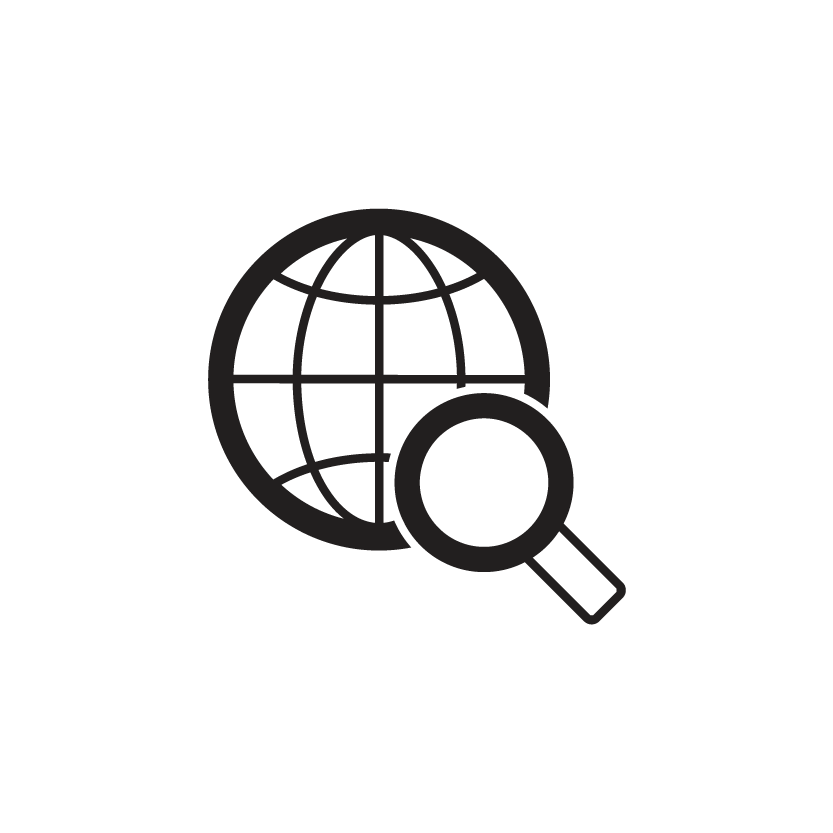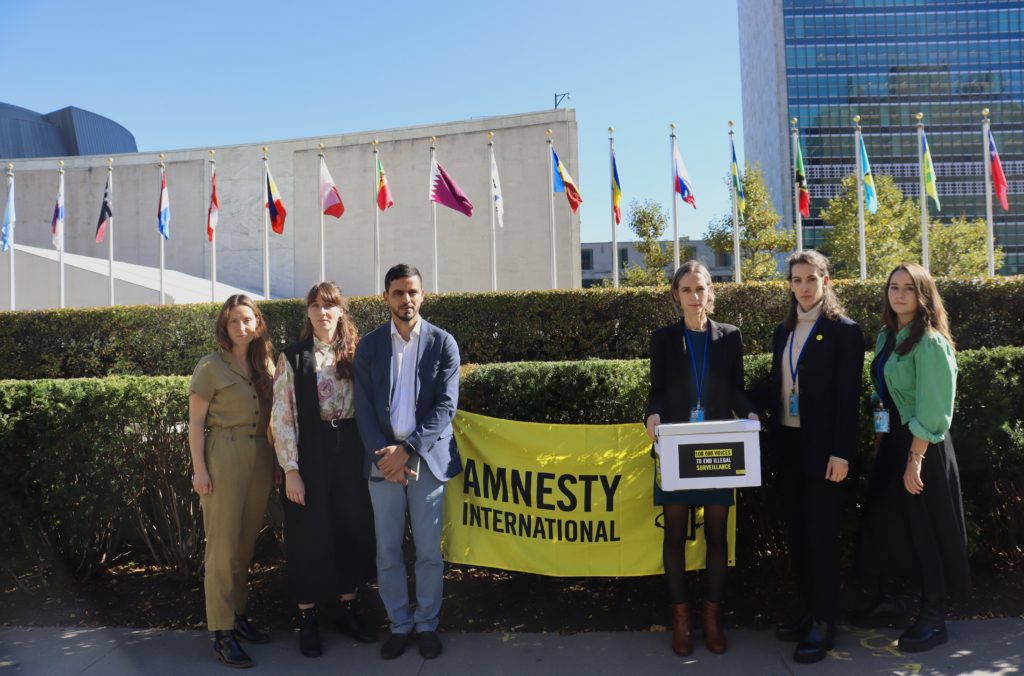What is targeted surveillance?
For many of us, that unsettling feeling of being watched is all too real. After all, we live in a world of mass surveillance, from facial recognition to online tracking – governments and technology companies are harvesting intimate information about billions of people. Targeted surveillance is slightly different. It’s the use of technology to spy on specific people.
Targeted surveillance can include the use of hidden cameras, recording devices, or being physically followed or monitored. Here at Amnesty’s Security Lab, we focus on uncovering targeted digital surveillance including spyware, phishing and other digital attack techniques.
Governments across the world are buying and allowing the sale of advanced highly invasive spyware that can compromise anybody’s digital devices and monitor their activity. These tools are made and sold by private companies who are profiting from human right abuses.
Governments and companies say that these surveillance tools are necessary to target ‘criminals and terrorists’. But in reality, scores of human rights defenders, journalists and many others – including Amnesty International staff members – have instead been unlawfully targeted with spyware.
How do we work?

experts and technologists
carry out research into
the surveillance industry and human rights violations by governments.


What are we calling for?
Governments are obligated under international law not only to respect human rights, but also to protect people from abuses by third parties such as private companies. For years, we have been working on holding both governments and the surveillance industry to account.
Our campaigning currently focuses on two global calls:
A BAN ON HIGHLY INVASIVE SPYWARE
The continuous drumbeat of spyware abuses being uncovered shows that even the best human rights safeguards will not protect us against highly invasive spyware like Pegasus. The spyware industry too often thrives on its “bad boy” image, marketing its products to governments as maximally invasive and undetectable – in effect advertising its potential for abuse. This type of spyware is designed to scoop up every type of imaginable data from a target’s device and leaves no traces. That’s why we believe there needs to be a global ban on highly invasive spyware – spyware whose functionality cannot be limited to accommodate the need for proportionality or which cannot be independently audited or verified in case of abuse.
A GLOBAL MORATORIUM
We believe there needs to be a global moratorium – a halt on the sale, transfer, and use of surveillance technology – until there is a proper human rights regulatory framework in place that protects people from the misuse of these tools. We are not alone. Civil society groups, activists, victims, UN experts and governments also support the need for an immediate moratorium – and so do Amnesty supporters.
More than 100,000 people from 180 countries took part in our global action to demand an end to the spyware crisis. In October 2022, we took these signatures to the United Nations in New York.

WHAT IS A MORATORIUM?
A moratorium is a suspension of an activity or law. It can also be seen as a freeze, pause or temporary ban – in this case on the use, sale, and transfer of spyware – until there are robust safeguards in place that ensure human rights are respected. We believe that no adequate regulatory framework currently exists.
We will keep working until we see an end to the global spyware crisis.
“I’ve got nothing to hide, so this doesn’t affect me, right?”
Think again. Our research shows that activists who fear – even without proof – that they are under surveillance will be less likely to speak out critically of their government. They’ll be less likely to organize protests, to meet freely with colleagues, to speak on the phone, send emails, or post online, not knowing how such activities could later be used against them.
This kind of self-censorship can also be referred to as a ‘chilling effect’ and it occurs because governments fail to enact adequate protections, so that it’s impossible to know who is subject to surveillance, how, or why.
Journalists too may refrain from reporting on certain issues, such as corruption, for fear of being targeted and putting themselves and their sources at risk. This has an impact on all of us – a free press reporting on the issues that interest us and shape our lives is a key building block of any rights-respecting society.
In other words, it’s not just the rights of individual targets who are affected by unlawful targeted surveillance. It affects everyone and anyone who maybe fearful of exercising their rights to free expression, association and peaceful assembly, amongst others, due to the ways in which data regarding their activities could be used against them.
Surveillance is a social justice issue
Unlawful targeted surveillance affects different people in different ways.
While surveillance and other forms of digital repression impact civil society all around the world, the harms are different, and more grievous, for those from marginalised and oppressed groups.
For example, personal information collected from spyware attacks on women can be weaponised in particular ways – through online harassment, leaking of sensitive information, cyberstalking and doxing. This can extend to offline abuse, such as blackmail, smear campaigns, intimidation, and threats of violence. The harms are exacerbated in countries with discriminatory practices and laws against women, or when women face multiple and intersecting forms of discrimination, such as racialized women, women from ethnic or religious minorities, LGBT women, and women with disabilities.
We all know that privacy matters. Our private thoughts, texts, friendships, social interactions make up who we are. But spyware abuse is about more than personal privacy – It’s about social justice.
Get Involved
Follow Us
Latest human rights news, stories, and actions
Share our story
This is why we do what we do
Join the conversation
@AmnestyTech

